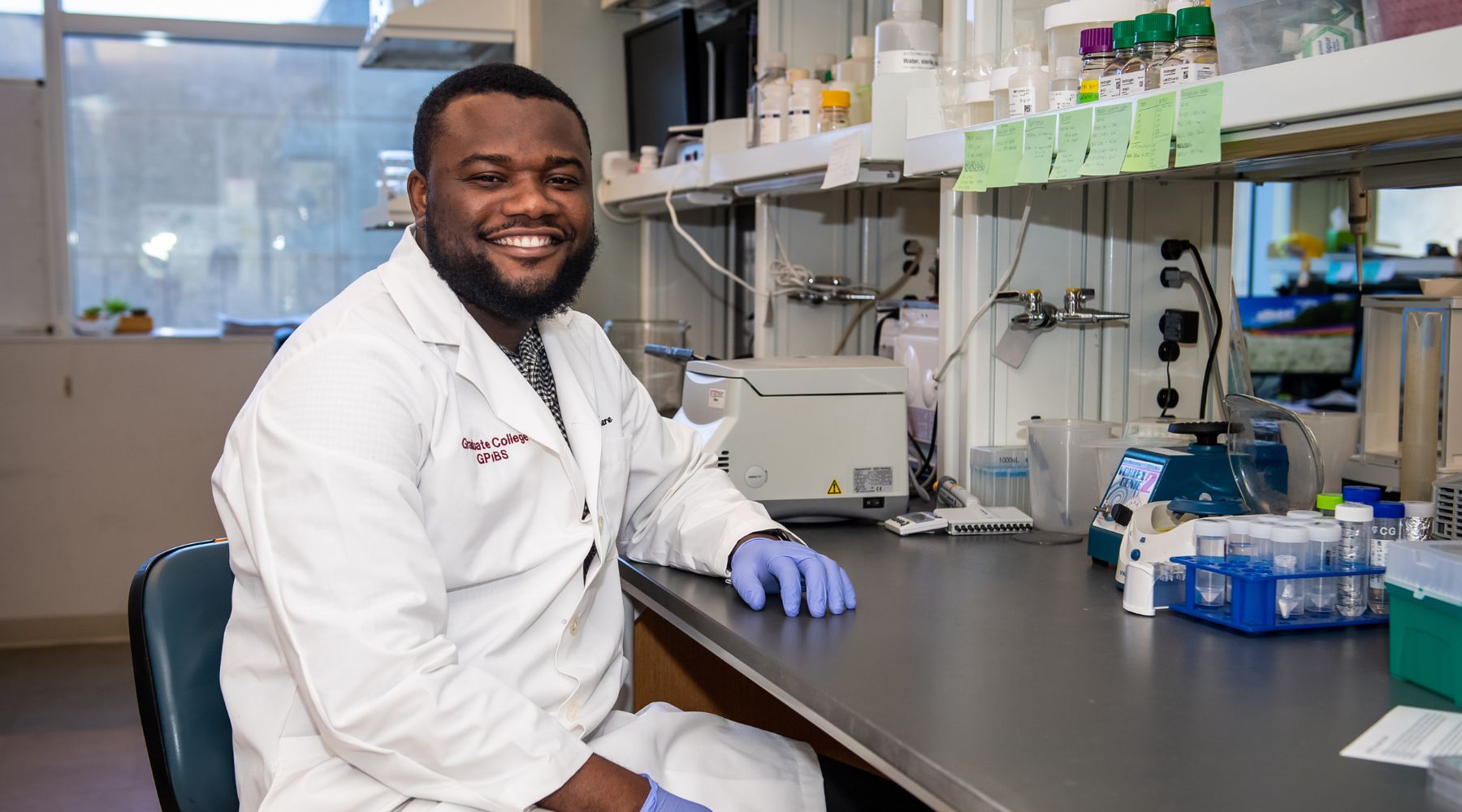An Oklahoma Medical Research Foundation scientist focused on healthy brain aging has secured a rare National Institutes of Health fellowship aimed at preparing young researchers to run their own labs.
Victor Ansere, a graduate student in the lab of OMRF scientist Bill Freeman, Ph.D., will study the restorative effects of donated blood plasma in research models of aging brains and obesity.
Ansere is the first in Oklahoma to land an NIH Pathway to Independence Award. Launched in 2014, it is the only NIH grant program open to scientists who are in the U.S. on a temporary visa.
A native of Kumasi, Ghana, Ansere arrived in Oklahoma in 2018 with a master’s degree in clinical pharmacology. He has worked in Freeman’s lab since 2019.
Ansere is pursuing his doctorate in physiology at the University of Oklahoma Health Sciences Center. The NIH fellowship program provides a monthly stipend to complete a Ph.D. and then covers the scientist’s salary and expenses for up to three years of postdoctoral training.
“This is a fantastic validation of the work Victor has put in,” Freeman said. “His area of research is extremely challenging and requires extensive amounts of time, which is why there are so few people working in it. But it has potential to make a big impact.”
Ansere’s research focuses on the brain’s primary immune cells, called microglia. “We believe that as you age, these microglia become more reactive, ready to fight, and that obesity can have the same effect,” Ansere said. “But being constantly on guard can lead to brain inflammation that can cause neurodegenerative diseases like Alzheimer’s.”
He hopes to show through research models that plasma from a younger donor can keep the microglia in check in aging brains, preventing this inflammation. Ansere will also test whether a calorie-restricted diet can reverse damage to microglia.
Ansere’s grant, F99AG079813, is funded by the National Institute on Aging, part of the NIH.



